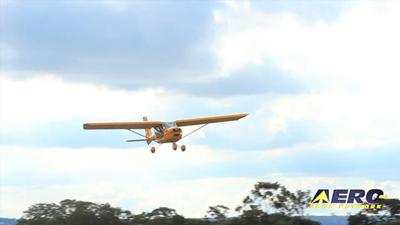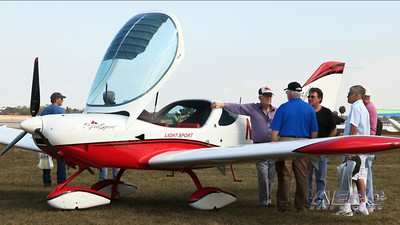Tue, Aug 01, 2023
Light Sport Pilots May Get “Real” Airplanes Sooner Rather Than Later
Questions/Thoughts/Opinion By Gene Yarbrough
As the much-ballyhooed MOSAIC NPRM was published just a few days ago and the personal aviation crowds are digesting its contents, ramifications, and maybe unintended consequences.

As part of the proposal light sport pilots will gain access to heavier, faster, and more capable aircraft as the gross weight and maximum speeds of light sport aircraft will be greatly increased or removed entirely, with the class only limited by stall speed. When the proposal becomes final, and who knows exactly when that will happen, the real intent of Sport Pilot licensure will be realized, access to simple low performance 4 place aircraft like 172’s and Cherokees among others that are practical and ubiquitous in the national airspace.
This expansion of light sport aircraft definition opens the possibility of maintaining or returning to flight many thousands of aviators that would otherwise stay grounded. It may be a boon to the personal and recreational aviation industry by increasing demand for aircraft and services. By all accounts the light sport sector has seen less incidents and accidents than other aeromedical classes and that bodes well for the aircraft category performance expansion and passage of the MOSAIC regulation.
In the interest of maintaining aeromedical excellence for the category, light sport pilots will have to remain vigilant in keeping their health conditions in check and well managed. As the line between light sport aircraft becomes blurred with traditional part 23 aircraft the lines between Light Sport Pilot and pilots flying under BasicMED likewise become blurred and blended. As MOSAIC comes online the only discernible difference between light sport and BasicMED will be the number of passengers carried. As most recreational pilots usually carry only 1 extra passenger either light sport or BasicMED will become a redundant situation.

The only practical difference between a light sport pilot and BasicMED pilot, other than their allowed number of passengers, is the basis of certification. Where a pilot operating under BasicMED must have HAD a medical certification issued under a different class within the last ten years, sport pilot only needs a state issued drivers’ license. Still the statistics show no detrimental difference in the two classes with respect to medical issues that cause aircraft accidents or incidents. This would suggest that the higher standard of BasicMED is unnecessary, and a state issued driver's license is sufficient in providing the desired level of safety.
As MOSAIC becomes law we should watch statistics carefully, increasing Sport pilot privileges to align with BasicMED pilots would be an even greater boon to the industry.
More News
Terminal Radar Service Area Airspace surrounding designated airports wherein ATC provides radar vectoring, sequencing, and separation on a full-time basis for all IFR and participa>[...]
Very High Frequency (VHF) The frequency band between 30 and 300 MHz. Portions of this band, 108 to 118 MHz, are used for certain NAVAIDs; 118 to 136 MHz are used for civil air/grou>[...]
“From approximately November 2021 through January 2022, Britton-Harr, acting on behalf of AeroVanti, entered into lease-purchase agreements for five Piaggio-manufactured airc>[...]
Also: Virtual FLRAA Prototype, IFR-Capable Autonomous A/C, NS-32 Crew, Golden Dome Missile Defense Bombardier announced that the first production Global 8000 successfully completed>[...]
Aero Linx: The 1-26 Association (Schweizer) The Association’s goal is to foster the helpfulness, the camaraderie, and the opportunity for head-to-head competition that is fou>[...]
 ANN's Daily Aero-Term (05.29.25): Terminal Radar Service Area
ANN's Daily Aero-Term (05.29.25): Terminal Radar Service Area ANN's Daily Aero-Term (05.30.25): Very High Frequency (VHF)
ANN's Daily Aero-Term (05.30.25): Very High Frequency (VHF) Aero-News: Quote of the Day (05.30.25)
Aero-News: Quote of the Day (05.30.25) Airborne 05.23.25: Global 8000, Qatar B747 Accepted, Aviation Merit Badge
Airborne 05.23.25: Global 8000, Qatar B747 Accepted, Aviation Merit Badge ANN's Daily Aero-Linx (05.30.25)
ANN's Daily Aero-Linx (05.30.25)




